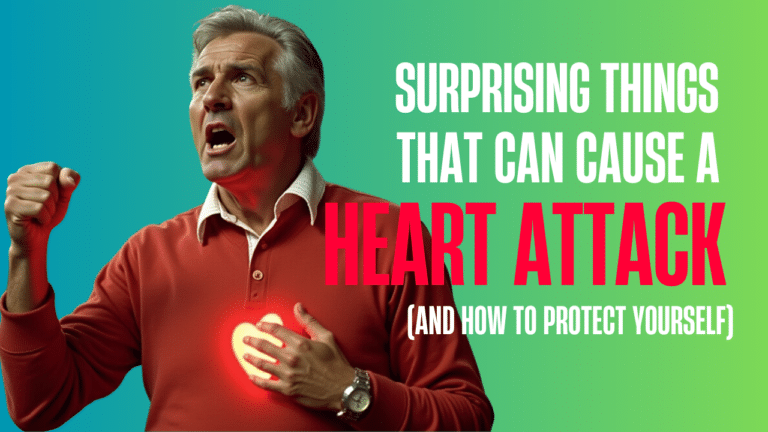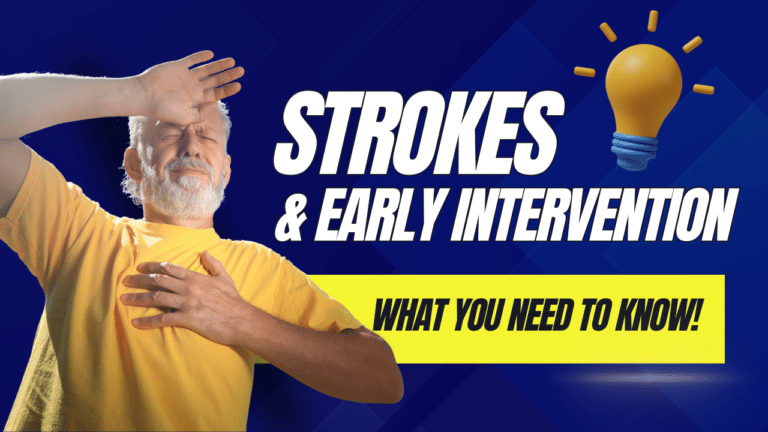Stress management for heart health isn’t just about feeling better—it’s about protecting one of your body’s most vital organs. When chronic stress becomes a constant companion, it triggers a cascade of physiological responses that can significantly increase your risk of cardiovascular disease. This article provides evidence-based, practical techniques you can implement today to reduce stress and support your heart health for years to come.
How Stress Affects the Heart
Understanding the connection between stress and cardiovascular health is the first step toward better heart protection. When you experience stress, your body launches into fight-or-flight mode, flooding your system with hormones like cortisol and adrenaline. While this response is helpful in short bursts, chronic activation creates serious problems for your cardiovascular system.
The Hormonal Response
Stress hormones like cortisol and adrenaline cause immediate changes in your cardiovascular system. These hormones increase your heart rate, constrict blood vessels, and raise blood pressure—changes that, when sustained over time, can damage artery walls and increase your risk of heart disease. Chronic stress is associated with a significantly increased risk of developing cardiovascular disease, making stress management a critical component of heart health.
Physical Impact on the Cardiovascular System
Beyond hormonal changes, chronic stress promotes inflammation throughout your body. This inflammatory response can accelerate the buildup of plaque in your arteries, a condition known as atherosclerosis. Additionally, stress often leads to behaviors that further harm heart health, such as poor sleep, unhealthy eating, and reduced physical activity.
Breathing & Relaxation Techniques
Simple breathing exercises offer one of the most accessible and effective ways to combat stress and protect your heart. These techniques activate your parasympathetic nervous system, which counteracts stress responses and promotes relaxation. The beauty of breathing exercises lies in their simplicity—you can practice them anywhere, anytime stress levels begin to rise.
Diaphragmatic Breathing
Also known as belly breathing, diaphragmatic breathing involves breathing deeply into your diaphragm rather than shallow chest breathing. To practice this technique, place one hand on your chest and another on your stomach. Breathe in slowly through your nose, ensuring the hand on your stomach rises more than the one on your chest. Exhale slowly through pursed lips, feeling your stomach hand lower.
The 4-7-8 Breathing Method
This technique involves inhaling for 4 counts, holding your breath for 7 counts, and exhaling for 8 counts. Start by exhaling completely, then inhale through your nose for 4 counts, hold for 7, and exhale through your mouth for 8 counts. This pattern naturally slows your heart rate and activates relaxation responses.
Progressive Muscle Relaxation and Yoga
Progressive muscle relaxation involves systematically tensing and then releasing different muscle groups throughout your body. Start with your toes and work your way up to your head, holding tension for 5-10 seconds before releasing. Research shows that 54 of 72 studied breathing interventions demonstrated significant stress reduction benefits, with sessions lasting at least 5 minutes proving most effective.
Exercise & Physical Activity
Regular physical activity serves as a powerful stress-reduction tool while simultaneously strengthening your cardiovascular system. Exercise provides a healthy outlet for stress hormones while triggering the release of endorphins—your body’s natural mood elevators. The key is finding activities you enjoy and can maintain consistently over time.
Moderate Exercise for Maximum Benefit
You don’t need to become a marathon runner to reap the cardiovascular benefits of exercise. Aim for at least 30 minutes of moderate activity most days of the week. This might include brisk walking, swimming, cycling, or dancing. Regular exercise of 30+ minutes most days decreases cortisol and adrenaline levels while boosting cardiovascular fitness, creating a dual benefit for stress management and heart health.
Finding Your Exercise Sweet Spot
The best exercise routine is one you’ll actually follow. If you’re new to exercise, start with 10-15 minutes of gentle activity and gradually increase duration and intensity. Consider activities like gardening, playing with pets, or taking stairs instead of elevators as ways to incorporate movement into your daily routine.
Mindfulness & Meditation
Mindfulness practices offer a scientifically-backed approach to reducing stress and supporting heart health. These techniques help you develop awareness of your thoughts and feelings without becoming overwhelmed by them. Regular mindfulness practice can lower anxiety, reduce blood pressure, and improve overall cardiovascular function.
Getting Started with Mindfulness
Begin with just 5-10 minutes of daily mindfulness practice. You can use guided meditation apps, focus on your breathing, or simply observe your thoughts without judgment. The goal isn’t to eliminate thoughts but to develop a healthier relationship with them.
Meditation Apps and Guided Practice
Many people find success with smartphone apps that offer guided meditations specifically designed for stress reduction. These tools provide structure and variety, making it easier to maintain a consistent practice. Look for programs that include heart-focused meditations or loving-kindness practices.
The Role of Sleep
Quality sleep is fundamental to both stress management and cardiovascular health. During sleep, your body repairs and regenerates, while stress hormones naturally decrease. Poor sleep quality creates a vicious cycle where stress disrupts sleep, and inadequate sleep increases stress sensitivity.
Sleep Hygiene for Heart Health
Aim for 7-9 hours of sleep each night, maintaining consistent bedtimes and wake times even on weekends. Create a relaxing bedtime routine that might include gentle stretching, reading, or listening to calming music. Sleep deprivation increases the likelihood of hypertension and heart disease, making quality sleep a non-negotiable component of heart-healthy living.
Creating an Optimal Sleep Environment
Your bedroom should be cool, dark, and quiet. Consider blackout curtains, white noise machines, or earplugs if needed. Avoid screens for at least an hour before bedtime, as blue light can interfere with your body’s natural sleep-wake cycle.
Social Support & Lifestyle Habits
Strong social connections act as a buffer against stress while promoting overall well-being. People with robust support networks tend to have lower stress levels, better coping mechanisms, and reduced cardiovascular risk. Building and maintaining these relationships requires intentional effort but pays significant dividends for your heart health.
Building Your Support Network
Invest time in relationships that provide mutual support and understanding. This might include family, friends, colleagues, or members of community groups. Don’t hesitate to reach out when you’re struggling—most people are more willing to help than you might expect.
Effective Time Management
Poor time management often contributes to chronic stress. Develop systems for prioritizing tasks, setting realistic goals, and saying no to commitments that don’t align with your values or capacity. Consider using calendars, to-do lists, or productivity apps to help manage your responsibilities more effectively.
Avoiding Harmful Coping Mechanisms
When stressed, it’s tempting to reach for quick fixes like alcohol, cigarettes, or comfort food. These strategies provide temporary relief but ultimately worsen both stress levels and cardiovascular health. Instead, develop a toolkit of healthy coping strategies you can turn to during challenging times.
Practical Daily Routine Tips
Integrating stress management into your daily routine doesn’t require major lifestyle overhauls. Small, consistent changes can yield significant benefits for your heart health over time. The key is choosing techniques that fit naturally into your existing schedule and preferences.
Workplace Stress Management
Take short breathing breaks throughout your workday, even if just for 2-3 minutes between meetings. Practice the 4-7-8 breathing technique during your commute or while waiting in line. Keep a stress ball or fidget tool at your desk for moments of tension.
Evening Wind-Down Routine
Establish a consistent evening routine that signals to your body it’s time to relax. This might include gentle stretching, journaling, or practicing gratitude. Consider keeping a notebook by your bed to write down any worries or tomorrow’s tasks, helping clear your mind for sleep.
Movement Throughout the Day
Look for opportunities to incorporate movement into your routine. Take walking meetings, park farther from entrances, or do desk exercises during breaks. Even small amounts of movement can help reduce stress hormone levels and improve circulation.
Mindful Moments
Practice mindfulness during routine activities like eating, walking, or washing dishes. Pay attention to sensory experiences—the taste of your food, the feeling of your feet on the ground, or the warmth of water on your hands. These moments of presence can help reset your stress response throughout the day.
FAQ
How does stress affect heart health?
Stress triggers the release of hormones like cortisol and adrenaline that raise blood pressure, increase heart rate, and promote inflammation. Over time, these effects can damage blood vessels, accelerate plaque buildup in arteries, and significantly increase the risk of heart disease and stroke.
What breathing techniques help with heart health?
Diaphragmatic breathing and the 4-7-8 technique are particularly effective. Both activate the parasympathetic nervous system, which counteracts stress responses by slowing heart rate and lowering blood pressure. Practice these techniques for at least 5 minutes to maximize benefits.
Can exercise reduce stress for heart health?
Yes, regular moderate exercise is one of the most effective stress-reduction strategies. Physical activity reduces stress hormones, releases mood-boosting endorphins, and strengthens the cardiovascular system. Aim for at least 30 minutes of moderate activity most days of the week.
How important is sleep for managing stress and heart health?
Sleep is crucial for both stress management and cardiovascular health. During quality sleep, stress hormones naturally decrease while your body repairs and regenerates. Poor sleep increases stress sensitivity and raises the risk of hypertension and heart disease. Aim for 7-9 hours of quality sleep each night.
Does mindfulness meditation help with heart health?
Research demonstrates that mindfulness meditation effectively reduces anxiety and stress while promoting physiological relaxation. Regular practice can lower blood pressure, reduce inflammation, and improve overall cardiovascular function through activation of the body’s relaxation response.
Conclusion
Managing stress for heart health doesn’t require perfection—it requires consistency and the right tools. By incorporating breathing exercises, regular physical activity, quality sleep, mindfulness practices, and strong social support into your daily routine, you can significantly reduce your cardiovascular risk while improving your overall quality of life. Remember that small, sustainable changes often prove more effective than dramatic lifestyle overhauls.
Start with one or two techniques that resonate with you, then gradually build your stress management toolkit over time. Your heart will thank you for every positive step you take toward better stress management and overall health.
This content is for informational purposes only and is not a substitute for professional medical advice, diagnosis, or treatment. Always consult with your healthcare provider before making significant changes to your health routine.





